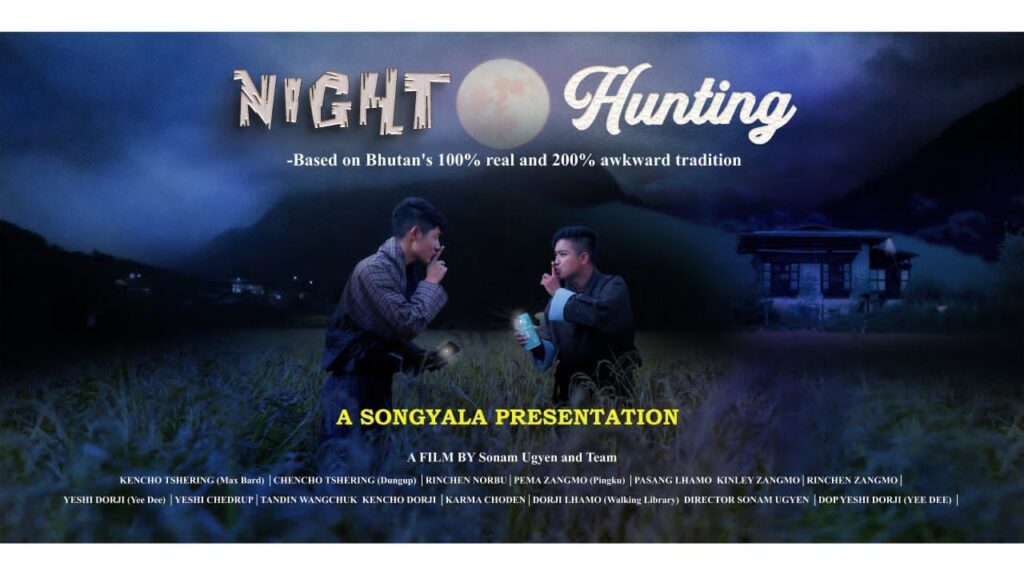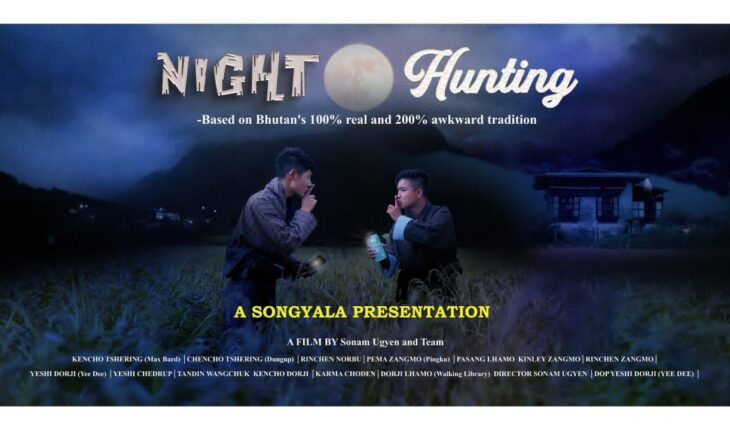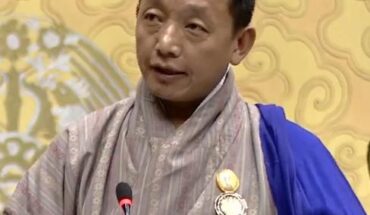
CHIONEY ZANGMO
Thimphu
A groundbreaking Bhutanese film, Night Hunting, is set to challenge audiences with its bold take on a once-accepted but controversial tradition. Directed by a Bhutanese filmmaker Sonam Ugyen, the movie explores the practice of Pchiru Shayni, popularly known as “Night Hunting,” a traditional form of courtship that over time evolved into a serious social issue. While originally intended as a romantic practice in rural Bhutan, the custom was increasingly misused, leading to cases of exploitation, unwanted pregnancies, and family disruption.
Through a compelling mix of humor and social commentary, Night Hunting critiques the consequences of the practice while shedding light on Bhutan’s legal reforms, which have played a crucial role in curbing its misuse. The film provides a thought-provoking look at how cultural traditions shift over time in response to evolving societal values and ethical considerations.
The filmmaker envisions the movie as both a mirror and a catalyst, reflecting Bhutanese society’s past while igniting meaningful discussions about the fine balance between preserving cultural heritage and ensuring human dignity and justice. “We wanted to approach this sensitive topic in a way that encourages discussion rather than controversy,” the filmmaker explained. “Humor is a powerful tool—it allows us to address difficult subjects while keeping the conversation open. Laughter can sometimes be the first step toward understanding and change.”
Set against the breathtaking rural landscapes of Bhutan, Night Hunting authentically captures both the beauty of the country and the raw emotions of its people. The film does not simply present the negative aspects of Night Hunting but also explores its cultural significance, portraying how traditions can start with positive intentions but later be manipulated in ways that harm individuals and communities.
The production was spearheaded by a team of local talents, ensuring that the film maintained a grassroots perspective true to Bhutanese culture. The cast and crew, many of whom are deeply connected to the country’s history and traditions, bring personal insights and lived experiences to the storytelling, making the narrative even more compelling.
Funding for the film came from local partnerships and the unwavering commitment of the creative team, who believed in the importance of telling this story. Despite the financial and logistical challenges of producing a film that addresses such a delicate issue, the team remained dedicated to ensuring that the conversation surrounding Night Hunting reaches a broader audience.
The release of Night Hunting is expected to ignite debates on cultural preservation, gender rights, and social justice. While some may view the film as a critique of Bhutanese traditions, others will see it as a necessary step toward progress. It raises pressing questions: How do we balance respect for tradition with the need for change? Can cultural reforms be embraced without losing Bhutan’s unique identity?
To provide historical and academic context, several Bhutanese scholars and researchers have extensively studied Bomena (another name for Night Hunting), documenting its impact on Bhutanese society. Experts like Dorji Penjore, Karma Phuntsho, and Kinley Dorji have contributed valuable insights into the origins of the practice, its transformation over time, and the social, legal, and ethical concerns surrounding it. Their work has helped shape a broader understanding of how traditions evolve and how legal and social interventions influence cultural practices.
The film does not attempt to provide a simple answer but rather encourages viewers to engage with these difficult questions. It offers a nuanced portrayal of a complex tradition—one that has been both cherished and condemned—while inviting audiences to reflect on the broader implications of societal change.
With Night Hunting, Bhutanese cinema takes a bold step forward, using storytelling as a medium to confront difficult truths while fostering awareness and change. The film is not just entertainment; it is an invitation to reflect on the intersection of culture, morality, and modernity.
As Bhutan continues to evolve and engage with global conversations on human rights and gender equality, films like Night Hunting play an essential role in shaping public discourse. The movie is set to premiere soon, and audiences are encouraged to come with open minds, ready for a cinematic journey that is as entertaining as it is enlightening.
The movie is pioneering at Lugar cinema hall.





